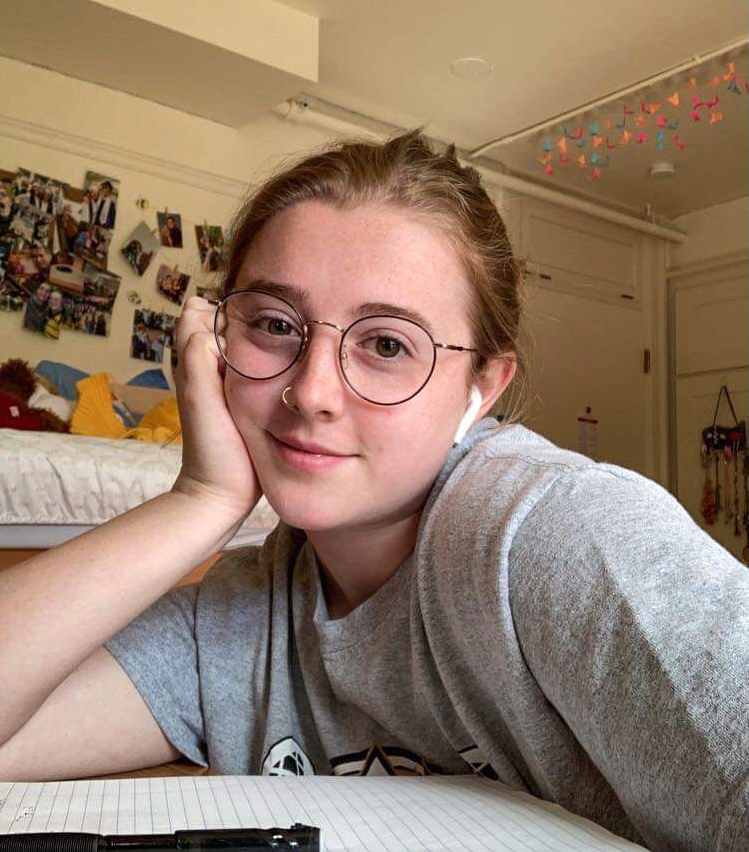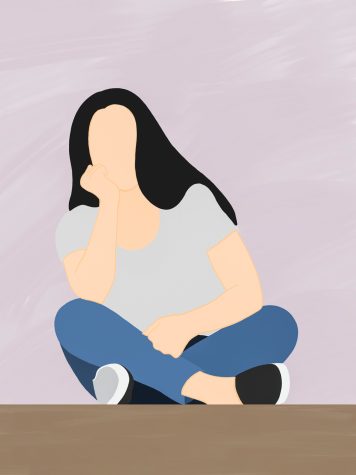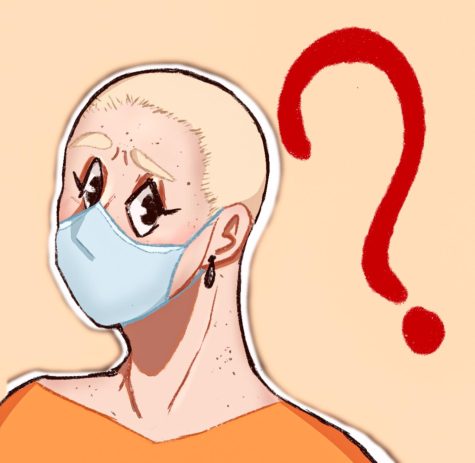Dorm residents’ access to mental health resources dismal
Relying on RAs adds extra time; energy not contingent to mental health crises
Freshman Norah Dacy enjoys dorm life, but on-campus living can take a toll on others’ mental health.
September 27, 2021
Living in residence halls can be a positive experience for so many people. Residence halls have helped bring together lifelong best friends; dorm living can foster community and overall enhance your college experience tenfold.
However, it can also be a struggle — especially for freshmen, many of whom are living on their own for the first time.
COVID-19 has also affected many residents’ traditional expectations of dorm life. Although things are slowly transitioning back to what we are used to, living on campus during a pandemic can often be a very isolating experience.
“COVID has changed how I expected college overall to be, not just dorm life,” freshman English major Norah Dacy said. “I definitely expected to meet a lot more people than I have. It’s very strange to be out interacting with tons of people again and I’ve found it hard to make connections with new people because it feels so awkward to talk in classes now.”
With the isolation and unknowns that come with the pandemic, compounded with the typical anxieties surrounding first-time independence, many residence hall dwellers are likely experiencing mental health struggles on levels that have never been seen before. Are residence hall staff equipped to provide their residents with the support they need?
Dacy says they generally are.
“I have a pretty good RA; I really like them. They’re funny and pretty quick to answer questions,” she said. “I feel like if I needed to, I could talk to them.”
It is extremely positive to feel like you can confide in someone if needed, but what kind of training do resident advisers receive to actually assist in these situations?
Jason Angeles, Hillside Residential Education director said the crisis training process for RAs is both theoretical — learning about hall policies and procedures — and simulatory which is more helpful in helping RAs practice what to do if crises arise.
Many of the simulations teach conversation and listening skills so RAs can assess the situation and determine what kinds of resources to best refer their residents to.
“One of the things is we try to give our RAs the ability to gauge what is an immediate need, what is a need that can wait till the next day,” Angeles said.
However, there is also an important question to be considered — should RAs be the ones who should be dealing with this at all?
Like those they are in charge of, RAs are students too, with demanding class schedules and other jobs and activities they need to take care of. Is this system of making fellow students be the primary mental health resource for other students even appropriate?
Trying to care for your own mental health is often taxing enough.
Students need quality, accessible assistance available to them directly through their RAs.
If a student is in a true crisis, that should not immediately be delegated to another student. Non-students working in residence halls, especially residence education directors, need to be more directly accessible to the students they serve.
Angeles says residential education directors like himself are one of the most immediate resources available. Unfortunately, they are not always available directly to students in crisis.
Most students in crisis will first need to talk to their RA, who then assesses the situation and may or may not seek necessary assistance.
Take me — I am not a resident in crisis. I am just a student columnist who was calling and emailing residence hall directors this week and weekend, hoping to speak to someone who could give me information for this column, as any good journalist should.
Of every number I called and every email I contacted (and trust me, there were a lot of them), exactly one person got back to me — Angeles.
I completely support and advocate for work-life boundaries, but when you work directly with students — especially those trying to survive their first year of college in the middle of a global pandemic — you must make yourself more available to us students.
I will concede — every voicemail message I heard had an affirmation saying, “If this is an emergency, please hang up and call 911.” But can we be real for a moment?
How often is someone who is experiencing a mental health crisis going to call 911 of their own accord?
Police can be frightening and alarming for anyone, especially for people of color and neurodivergent people who experience alarmingly high rates of police violence. The police are sometimes not who you want around in the midst of a mental health crisis.
No — WSU’s residence halls need accessible emergency resources right on site. Not fellow students but adults and professionals.
I am so thankful I was not a resident in crisis trying to call around for someone to help me on site. It is hard to imagine what could have happened if I was.


















